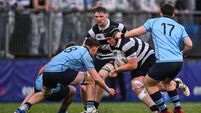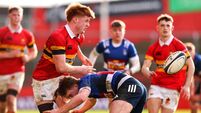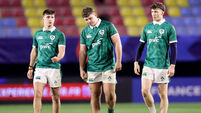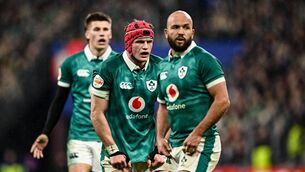Irish caps ‘demeaned by sub parade’
Their luck was in and out trotted Donncha O’Callaghan, Frankie Sheahan, Victor Costello, Guy Easterby, David Humphreys and Kevin Maggs.
The game was halfway through its 79th minute - and even then there was more game time left than when Sheahan and Gary Longwell were drafted in at the death against Italy a week before.















